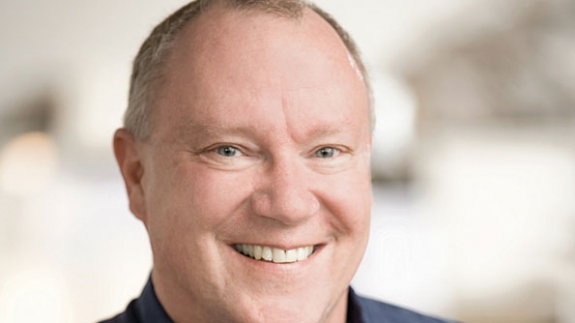D Block reallocation bill has vital support, but important questions persist
Yesterday, I participated in a conference that addressed how public-safety communications have changed on federal, state and local levels in the decade since the 9/11 terrorist attacks. The conference was presented by the New York State Association of Chiefs of Police and sponsored by Eastern Communications — a Long Island City, N.Y., two-way radio dealership — and Harris. The event attracted about 200 police chiefs. Among the speakers were Rep. Peter King (R-N.Y.) and Charles Dowd, deputy chief of the New York City Police Department, who oversees the NYPD's massive communications system.
King offered an update on the legislation he reintroduced into the House earlier this year (H.R. 607) that calls for reallocation of the 700 MHz spectrum known as the D Block to public safety. King reported that this version of the bill has strong bipartisan support, as did the first version, which had roughly 80 co-sponsors last year.
"That doesn't guarantee that the bill is going to pass, but there is strong bipartisan support," King said. "On the homeland security committee, Benny Thompson [D-Miss.], who is the ranking member and the former chairman of the committee, is a co-sponsor of this legislation. Even though he and I have very serious philosophical differences when it comes to combating terrorism, he is a supporter of this legislation."
King said that Sen. Joseph Lieberman (I-Conn.) soon will introduce a similar bill into the Senate, working with Sen. John McCain (R-Ariz.). This is in addition to the D Block-reallocation bill reintroduced in January by Sen. Jay Rockefeller (D-W.Va.), which King said is "slightly different than mine, but nothing of any great significance." He added that hearings on his bill, as well as the Rockefeller bill, are scheduled to be held tomorrow.
According to King, other positive indicators include President Obama's declarations that public safety should receive the D Block and the funding required to build the network, and Department of Homeland Security Secretary Janet Napolitano's statement that she will work closely with Congress to ensure that D Block reallocation becomes a reality.
"Right now, the momentum is going our way," King said. "A year ago, this wasn't even being discussed in Congress. Now, we have some of the most prominent names [in Washington] saying how vital this is."
King said that his bill tackles the three major components of bringing the proposed nationwide wireless broadband network for first responders to fruition: spectrum, funding and governance. Regarding spectrum, King cited the 9/11 Commission Report, which eight years ago recommended that Congress find a way to get more spectrum into the hands of public safety. "Yet, we still don't have sufficient allocated spectrum for a national [interoperable] public-safety wireless broadband network," King said. "We have to make progress; we have to move forward."
The reallocation of the 10 MHz D Block — which would be paired with a contiguous 10 MHz block of spectrum that public safety already possesses — would solve that problem. But though that would be a major victory on the level of David slaying Goliath — who thought even six months ago that public safety would be able to wrest these vital airwaves from the clutches of the commercial wireless operators? — it only represents half the battle. Funding is the other half. King said that his legislation comprehensively takes this into account.
"The legislation establishes grant programs, a construction fund to assist with the capital costs and a separate operations-and-maintenance fund to assist with ongoing operation of the network," he said.
King scooted out the door before I could ask him about a component of his new bill that has raised eyebrows across the public-safety sector. The money that would be generated for the U.S. Treasury by auctioning the D Block to commercial interests — something that won't happen if the airwaves are reallocated to public safety — would be replaced in part by auctioning spectrum in the 400 MHz band. This spectrum currently is being used by public-safety agencies from coast to coast. The concern is that many agencies that use this spectrum today won't have the interest or wherewithal to transition their voice operations to the broadband network when that capability eventually becomes available. Should that occur, what spectrum would be available to them if the UHF spectrum is taken away?
Dowd, who called King the "catalyst" behind the effort to secure the D Block for public safety — King was the first to introduce D Block-reallocation legislation a year ago — offered perspective on why King chose to offer up the UHF spectrum, an action that seems particularly curious given the groundswell of support that exists for reallocation. In other words, why play a card that doesn't seem to be needed to win the hand?
"I think the purpose of that being in the legislation is to show public safety's willingness to horse trade and to be flexible and to be open-minded," Dowd said.
According to Dowd, public safety can't move off that spectrum until it's certain that whatever agency decides to migrate from land-mobile radio to broadband for their voice services is comfortable doing that.
"That's not something that's going to happen overnight," he said. "Our expectation would be that the federal government would play its part by ensuring that the migration path was viable to do that. Unless they present a viable migration path, I don't think anybody should be expected to migrate off their LMR systems until they're ready to do it."
There is precedent for what Dowd described yesterday. Television broadcasters were supposed to vacate their UHF spectrum — some of which was used to form the D Block — in 2006 by law, but for myriad reasons they didn't actually do so until three years later.
Dowd added that any LMR-to-broadband migration strategy would have to include a funding mechanism that ensures all agencies would have access to the money necessary to execute the migration, and King's bill does.
"No agency gets left behind," Dowd said. "We've said that from the start of this. If this doesn't work for the urban and rural and the big and small, then it doesn't work [at all]. We're not leaving anybody behind on this effort."
Still, King is well aware that public safety might have questions and issues concerning his bill and encouraged officials to let him know if they see any problems.
"This is the first step — we can make changes," he said. "We want to work with you on this. We don't want to ram anything through and then find out later that there are unintended consequences that put your department in a worse position."
It's a phone call I would make. As was pointed out several times during yesterday's conference, public safety is only going to get one shot at this. It's imperative that it's done right. Unintended consequences are the worst kind.
What do you think? Tell us in the comment box below.

















